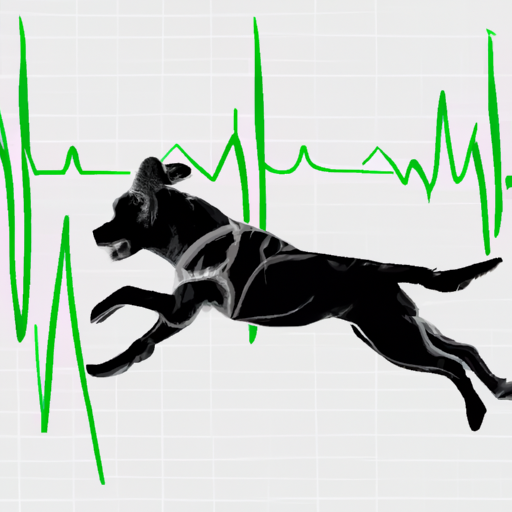As a caregiver to your furry friend, understanding their health is vital. One aspect that often goes overlooked is their heart rate. Let’s delve into the intricacies of a dog’s heartbeat and how understanding it can help you better care for your pet.
Understanding a Dog’s Heart Rate
Typically, a dog’s heart rate varies greatly depending on their size, breed, and age. For instance, puppies have a much faster heart rate compared to adult dogs. On average, a healthy dog’s heart rate can range from 60 to 140 beats per minute (bpm).
- Puppies (less than 1 year): Can range from 120 to 160 bpm.
- Small breed dogs (less than 30 pounds): Generally have a heart rate of 100 to 140 bpm.
- Medium to large breed dogs (over 30 pounds): Usually display a heart rate between 60 to 100 bpm.
This is only a general guide, and individual rates may vary. Always consult with an experienced veterinarian if you have concerns about your dog’s heart rate.
How to Measure a Dog’s Heartbeat
Before you can understand your dog’s heart rate, you need to know how to measure it properly. Here’s a step-by-step guide:
- Find a quiet place and make sure your dog is calm and relaxed.
- Locate your dog’s heartbeat. This can be found on the left side of their chest, just behind their front leg.
- Place your hand over this area, and you should be able to feel the heartbeat.
- Count the number of beats within a 15-second period.
- Multiply this number by 4 to get the beats per minute (bpm).
It may take a few attempts to accurately find and count your dog’s heart rate, so don’t be discouraged if you struggle initially.
Variations and Abnormalities in a Dog’s Heartbeat
It’s important to note that a dog’s heart rate can vary due to several factors. These can include exercise, stress, illness, or even the temperature. You should be concerned if your dog’s heart rate is consistently outside the average ranges or if it changes suddenly. This could indicate a serious health problem such as heart disease or other illnesses.
How a Dog’s Heartbeat Relates to Their Overall Health
A regular heartbeat is a sign of a healthy dog. However, a significant change in heart rate, whether it’s too fast or too slow, could indicate a health issue. Here’s a quick guide:
- Tachycardia: This term refers to an excessively fast heart rate. It could be a sign of heatstroke, anemia, or hypoxia.
- Bradycardia: This is when the heart rate is too slow. This could be due to hypothermia, a side effect of some medications, or an inherent heart disease.
If you notice any of these changes, it’s crucial to contact your veterinarian immediately.
Canine Heart Health: Tips for Caregivers
As a caregiver, there are several ways to help promote heart health in your dog:
- Regular exercise: This helps maintain a healthy heart rate and promotes overall wellness.
- Balanced diet: Feed your dog a diet rich in lean proteins, fruits, vegetables, and whole grains.
- Regular check-ups: Annual vet visits are essential for early detection and treatment of potential heart problems.
| Tips for Caregivers | Description |
|---|---|
| Regular exercise | Maintains a healthy heart rate and promotes overall wellness |
| Balanced diet | A diet rich in lean proteins, fruits, vegetables, and whole grains |
| Regular check-ups | Annual vet visits are essential for early detection and treatment of potential heart problems |
FAQs
Q1: Is a fast heartbeat normal for dogs?
A: Yes and no. A faster heart rate can be normal for puppies or smaller breeds. However, if your dog’s heart rate is consistently high, it could indicate a health problem.
Q2: How can I tell if my dog’s heart rate is too fast or slow?
A: You can check your dog’s heart rate by placing your hand on the left side of their chest. If their heart rate is consistently outside the average range (60-140 bpm), consult with a veterinarian.
Q3: Can a dog’s heart rate vary throughout the day?
A: Yes, a dog’s heart rate can vary due to factors such as temperature, stress, and exercise. It’s normal for a dog’s heart rate to increase during activity and decrease during rest.
Q4: How can I promote my dog’s heart health?
A: Regular exercise, a balanced diet, and regular check-ups with a vet are all crucial for maintaining your dog’s heart health.
Q5: Is a slow heartbeat dangerous for my dog?
A: A slow heart rate, or bradycardia, can be a sign of underlying health issues. If you suspect your dog’s heart rate is unusually slow, contact your vet immediately.



